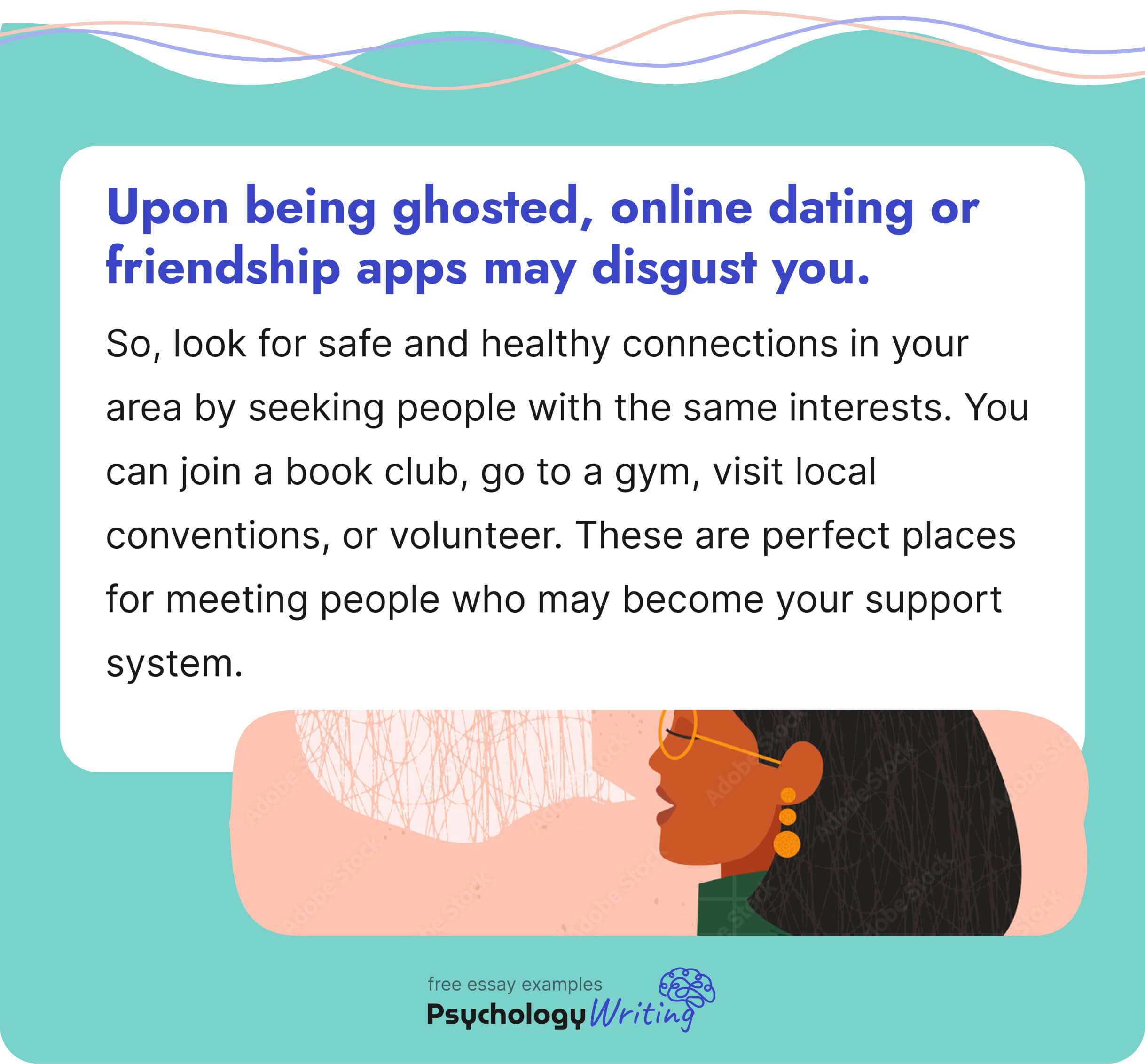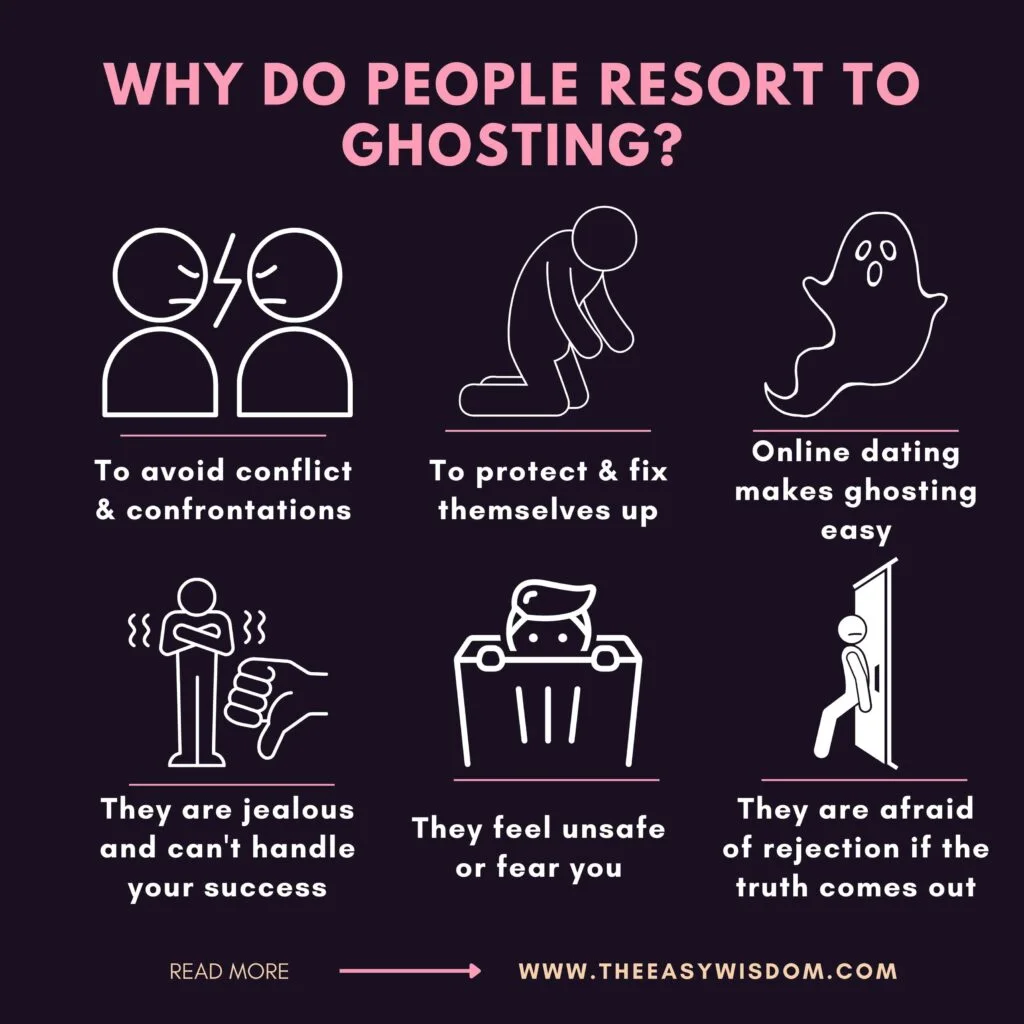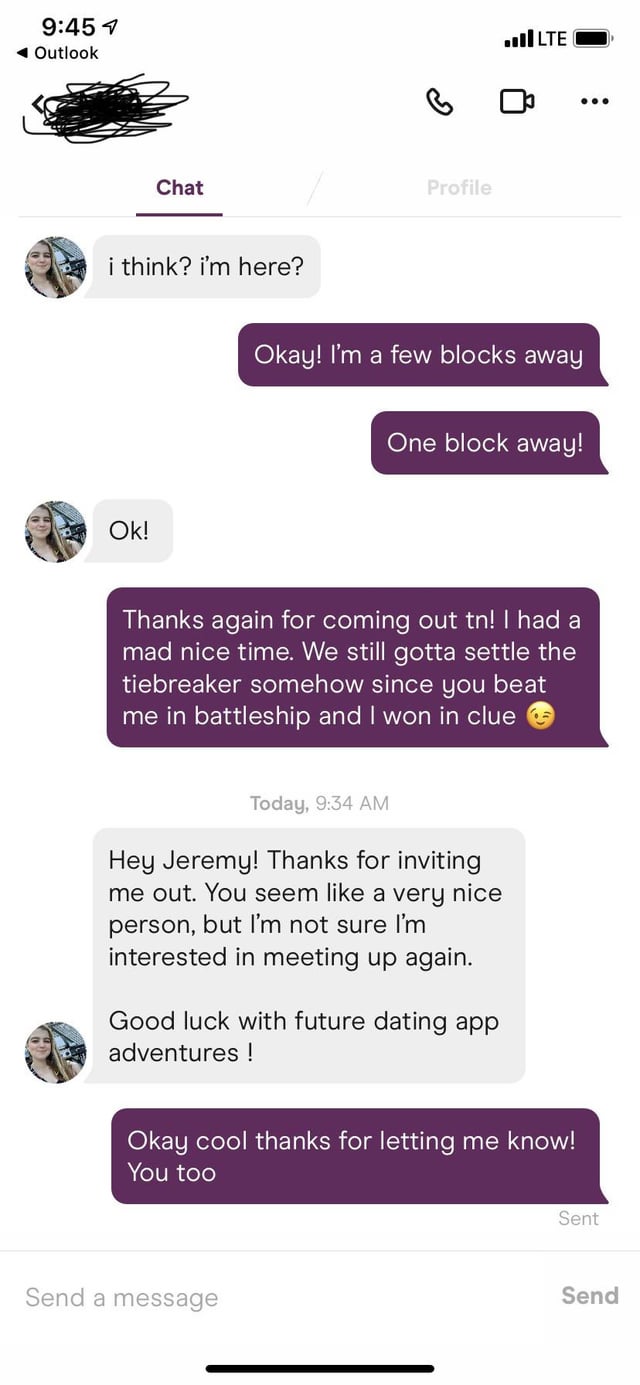
Understanding Ghosting on Dating Apps
Definition of Ghosting
Ghosting refers to the sudden and unexplained cessation of communication with someone the individual is dating or has been in contact with. Instead of addressing feelings or concerns directly, the “ghoster” simply disappears, leaving the other person confused and hurt. Imagine having deep conversations, sharing laughs, and then, out of nowhere, the texts stop—this is ghosting in action.
Common Reasons for Ghosting
There are various reasons why someone might ghost another person on dating apps, including:
- Fear of Conflict: Many individuals struggle with confronting uncomfortable situations.
- Lack of Chemistry: Sometimes, the initial attraction fades, leading to silence instead of a direct conversation.
- Overwhelm: The fast-paced nature of dating apps can be too much for some, prompting them to retreat.
- Personal Issues: They may be dealing with life stressors, making communication feel daunting.
These reasons highlight the complexities of modern dating, where connection and disconnection often happen in the blink of an eye.

Impact of Ghosting on Individuals
Emotional Effects of Being Ghosted
Being ghosted can lead to a whirlwind of emotions. The abrupt end to communication often leaves individuals feeling:
- Confusion: Questions loom large—What went wrong? Was it something I said?
- Rejection: The feeling of being discarded can deeply affect one’s self-esteem.
- Sadness: The loss of potential connection can trigger feelings of loneliness.
For many, the emotional fallout can be overwhelming, leading people to doubt their worthiness in the dating scene.
Psychological Impact on Mental Health
The implications extend beyond merely feeling upset. Ghosting can contribute to:
- Anxiety: The unpredictability of dating apps can heighten anxiety levels.
- Trust Issues: Future relationships may be colored by fears of abandonment.
- Depression: Continuous ghosting experiences can leave individuals feeling hopeless about love.
These psychological effects underscore the need for healthy communication and awareness around the phenomenon of ghosting.

Recognizing the Signs of Ghosting
Early Warning Signals
When navigating the world of dating apps, recognizing early warning signals can save individuals from the heartache of ghosting. Some signs to watch for include:
- Delayed Responses: Messaging becomes less frequent, and responses take longer than usual.
- Short or Dismissive Replies: Conversations may shift from engaging to curt and uninterested.
- Withdrawal from Plans: If they start canceling or avoid making plans, it may indicate a disinterest in continuing the connection.
For instance, if you notice that your conversations lack the enthusiasm they once had, it may be time to reassess.
Behavior Patterns Leading to Ghosting
Understanding the behavior patterns associated with ghosting can also help in recognizing potential red flags:
- Inconsistent Communication: A pattern of texting regularly followed by long silences can be a precursor to ghosting.
- Flakiness: Continually shifting priorities or last-minute cancellations often forebode that someone is pulling away.
Being attentive to these signals allows individuals to navigate dating with a bit more caution and awareness.

Coping Strategies for Dealing with Ghosting
Self-Care Practices
Recovering from ghosting can be challenging, but embracing self-care practices can help facilitate healing. Here are some effective strategies:
- Engage in hobbies: Distracting yourself through activities you love can shift your focus and improve your mood.
- Journaling: Write down your feelings to process emotions and gain clarity on your thoughts.
- Exercise: Physical activity not only boosts endorphins but also helps alleviate stress.
For instance, setting aside time for a favorite hobby—whether it’s painting, hiking, or cooking—can provide a welcomed escape and foster self-discovery.
Seeking Support from Friends or Professionals
Don’t hesitate to reach out for support when dealing with the aftermath of ghosting.
- Talk to friends: Sharing your experience with trusted friends can offer comfort and validation.
- Consider therapy: Speaking with a professional can provide deeper insights and coping mechanisms tailored to your situation.
Remember, opening up about your feelings can lighten the emotional load and pave the way for healing.

Communicating Effectively to Address Ghosting
Approaching the Issue with the Ghoster
When faced with the situation of being ghosted, it might be tempting to simply move on. However, if you feel comfortable, addressing the issue directly can provide closure. Here’s how to approach the ghoster:
- Choose an appropriate medium: Text or direct messaging might be ideal to maintain a level of comfort.
- Stay calm and respectful: Frame your message with curiosity rather than anger. For instance, you might say, “Hey, I noticed we stopped talking. Is everything okay?”
- Be open to their response: Prepare yourself for a range of reactions, understanding that their silence might be indicative of their personal struggles.
Setting Boundaries for Healthy Dating Dynamics
Establishing boundaries is essential in any relationship to promote healthy interactions. Here are some tips:
- Communicate expectations early: Be clear about what you’re looking for in a relationship from the start.
- Check in regularly: Ensure both parties are still on the same page to prevent misunderstandings.
- Recognize your worth: If ghosting becomes a pattern, know when to walk away and prioritize your well-being.
Setting these boundaries can help create a supportive dating environment that reduces the likelihood of ghosting.

Moving Forward After Experiencing Ghosting
Reflecting on the Experience
After encountering ghosting, taking time to reflect can be incredibly beneficial. Consider the following prompts:
- What did I learn? Think about what the experience taught you about your own needs and boundaries.
- How did it make me feel? Acknowledge your emotions and identify any patterns in your dating life that may warrant attention.
- What would I do differently next time? Use these insights to refine your approach in future relationships.
For example, recognizing a trail of similar experiences might motivate a change in how you communicate your expectations.
Opening Yourself to New Connections
Don’t let one negative experience deter you from seeking new relationships. Here are ways to embrace the future:
- Stay open-minded: Give new connections a chance, understanding that not everyone will ghost.
- Take it slow: Build relationships gradually to foster trust and understanding.
- Engage in social activities: Try new hobbies or join groups where you can meet potential partners organically.
Opening yourself to new connections allows for fresh experiences while cultivating resilience in the dating landscape.

Conclusion and Final Thoughts
Recap of Strategies Discussed
As we wrap up our discussion on ghosting, it’s essential to remember the strategies that can empower individuals facing this phenomenon. Key takeaways include:
- Recognizing early warning signs in communication that may indicate a potential ghosting scenario.
- Practicing healthy self-care strategies to manage emotional fallout and maintain mental wellness.
- Communicating effectively with both ghosters and new connections by setting clear boundaries and expectations.
By applying these insights, individuals can navigate the often-turbulent waters of modern dating with greater confidence.
Encouragement for Positive Dating Experiences
Ultimately, dating should be an opportunity for connection and joy. Embrace every interaction as a chance to learn and grow. Remember, even if ghosting occurs, it doesn’t define your worth or future prospects.
Stay hopeful, keep an open heart, and trust that positive experiences await on the next chapter of your dating journey. Embrace vulnerability, and you may just find the relationship that truly resonates with you.
